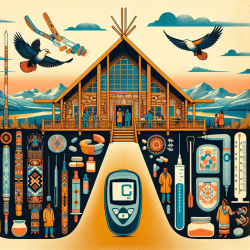Introduction
In an increasingly digital world, the accessibility and transparency of medical records are crucial for effective patient-centered care. The research article "Six countries, six individuals: resourceful patients navigating medical records in Australia, Canada, Chile, Japan, Sweden, and the USA" provides valuable insights into how patients across the globe are engaging with their medical records. This blog will explore how practitioners can leverage these insights to enhance their practice and improve patient outcomes.
Understanding Global Perspectives
The study highlights the diverse experiences of patients in accessing and utilizing their medical records in six different countries. Each country presents unique challenges and opportunities for patients to become active participants in their healthcare. Here are some key takeaways:
- Australia: The My Health Record system aims to centralize health information, yet many patients still face barriers in accessing comprehensive data.
- Canada: While a significant percentage of physicians use electronic medical records, patient access remains limited, highlighting the need for more inclusive systems.
- Chile: Patients often rely on paper records and face challenges in accessing digital health information, underscoring the need for better integration of health IT.
- Japan: Despite legal rights to access medical records, many patients are unaware of these opportunities, suggesting a need for increased awareness and education.
- Sweden: With a robust national health information infrastructure, Swedish patients enjoy greater access to their records, demonstrating the benefits of a well-integrated system.
- USA: Although electronic health records are widely used, patients still struggle with accessing comprehensive data, particularly doctors' notes.
Implications for Practitioners
Practitioners can draw several lessons from this research to enhance patient engagement and care:
- Promote Transparency: Encourage the use of patient portals and ensure that patients have access to comprehensive health information, including doctors' notes.
- Educate Patients: Provide education on how to access and interpret medical records, empowering patients to take an active role in their healthcare.
- Foster Communication: Engage in open dialogues with patients about their records, addressing any discrepancies and ensuring that patients' concerns are heard.
- Leverage Technology: Utilize digital tools to streamline access to medical records and enhance patient-provider communication.
Encouraging Further Research
The findings of this study underscore the need for ongoing research into patient-centered care and the role of medical records in improving health outcomes. Practitioners are encouraged to explore further research in this area to better understand the evolving needs of patients and to develop innovative solutions that enhance care delivery.
Conclusion
As the global landscape of healthcare continues to evolve, the accessibility and transparency of medical records remain critical components of effective patient-centered care. By learning from the experiences of patients worldwide, practitioners can enhance their practice, improve patient engagement, and ultimately, achieve better health outcomes.
To read the original research paper, please follow this link: Six countries, six individuals: resourceful patients navigating medical records in Australia, Canada, Chile, Japan, Sweden and the USA.










